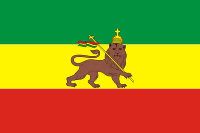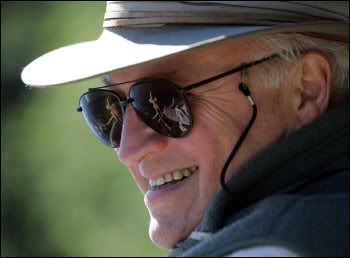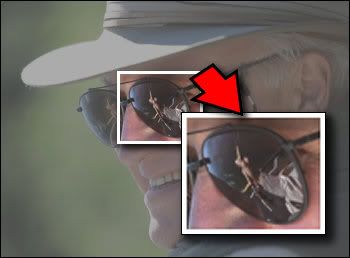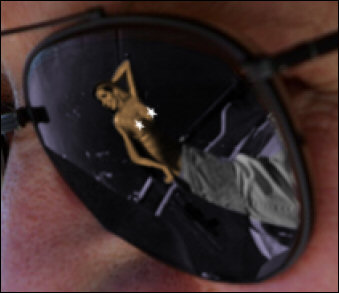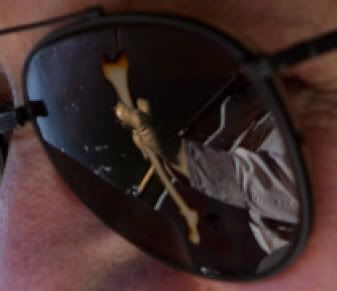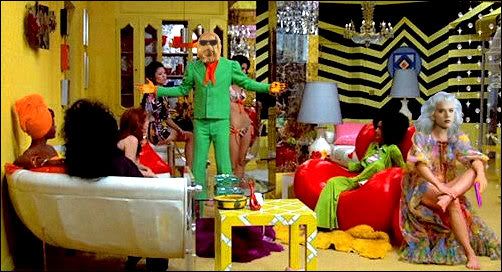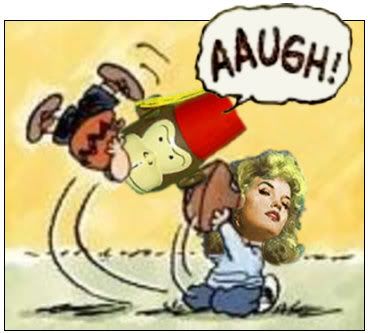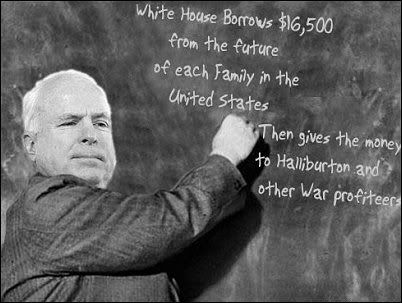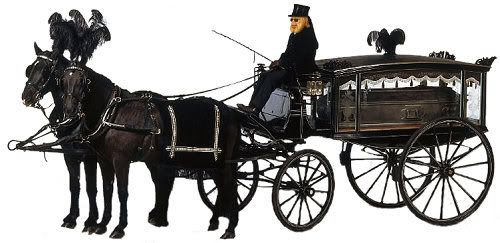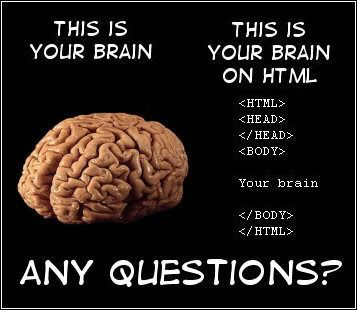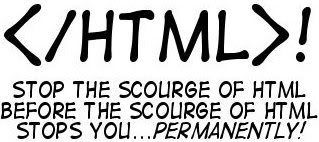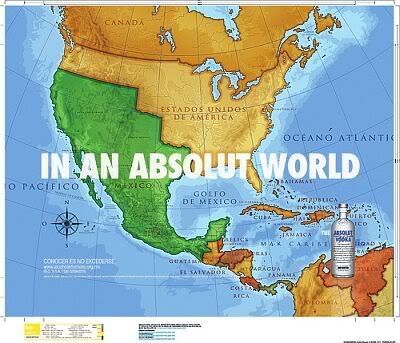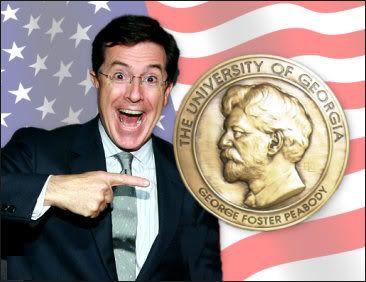I would have no idea who Haile Selassie was if it was not for my brother. When I was in high school, my brother would play Bob Marley records (and Grateful Dead records) ad infinitum, and would spout Rastarian phrases and say that he believed in the religion of Rastafarianism. When I would ask him about the movement, he would utter the most ridiculous bilge, and I knew he was just making stuff up off the top of his head.
It was my sworn duty as a teenager to prove my brother wrong on any subject that I could, so I set out to learn everything I could about Rastafarianism. I went to the school library, but they just showed me tomes on Marcus Garvey. (Remember, I was still in high school. This took place at the dawn of time, before Al Gore invented the internet.) The librarian suggested that I contact a local seminary, and I later called them on the phone.
I can't remember who I spoke to, but the gentleman went out of his way to get me the information. He photocopied and mailed about 40 pages of information from religious digests that were extremely helpful.
Armed with my newfound knowledge, I was able to successfully tell my brother that he didn't know what he was talking about.
(Ha! So there!) To understand the material, I unfortunately had to go look up some ***boring history related stuff*** about Ethiopia. (In the end, I actually found it very interesting.)
My brother has since turned to Buddhism, a subject that he is equally unfamiliar with. Personal mythology is subjective I guess, more personal for some than others.
To understand Rastafarianism, you have to understand the former Ethiopian ruler Haile Selassie. Some would say that he was immensely popular both at home and abroad, others would call him a despot. No matter what, he was a huge figure in history. Here is the short version:
Haile Selassie was the emperor of Ethiopia, considered by some to be the last sovereign "king" on Earth. He became the Regent and de facto ruler of the Ethiopian Empire in 1916, and the Emperor of Ethiopia in 1930. After Ethiopia was invaded by Italy in 1935, Haile Selassie lost power and was in exile from 1936 to 1941. He regaining his crown after the Italian army was expelled by the Allied forces. His reign came to an end in 1974, when a pro-Soviet Marxist-Leninist military junta deposed him, and established a one-party communist state.
Today Haile Selassie is worshipped as the living God incarnate among followers of the Rastafari movement, which emerged in Jamaica during the 1930s under the influence of
Marcus Garvey's "Pan Africanism" movement. [
1 ] Haile Selassie did not start this movement, nor did the movement start in Ethiopia. It started in the West Indies.
When Haile Selassie visited Jamaica on April 21, 1966, somewhere around one hundred thousand Rastafari from all over Jamaica descended on the Kingston Airport, having heard that Haile Selassie was coming to visit them. As I read in one account, pretty much all of Jamaica came to a grinding halt for three days, as the majority of the population left to see the Emperor. "This day, widely held by scholars to be a major turning point for the movement, is still commemorated by Rastafarians as
Grounation Day, the anniversary of which is celebrated as the second holiest holiday after November 2, the Emperor's Coronation Day."
Because of his official rank, Haile Selassie was also the titular head of the
Ethiopian Orthodox Church (see also
Coptic) and, until his visit to Jamaica in 1966, "he had never confirmed nor denied that he was divine. During his visit he specifically declined to refute the Rastafari belief that he was God. [...] In 1948, Haile Selassie donated a piece of land at Shashamane, 250 km south of Addis Ababa, for the use of Blacks from the West Indies. Numerous Rastafari families settled there and there is a community there to this day." [
1 ]
The overall dogma of Rastafarianism is very broad and loose, and there is not a lot of agreement among its followers. Rastafarian beliefs are less formulaic, and are based on a widely varying set of key themes. For example, different factions of the Rastafarian movement claim to be followers of Ethiopian Orthodox Christianity, Protestant Christianity, or Judaism. Different factions are called Mansions:
Mansions of Rastafari are branches of the Rastafari movement. Mansions include the Bobo Ashanti, the Nyabinghi, the Twelve Tribes of Israel, and others. The term is taken from the Biblical verse in John 14:2, "In my Father's house are many mansions." [
2 ]
Rastafarians identity themselves with the ancient Israelites. they draw on a historical parallel with the Israelites slavery in Egypt. Pretty much the whole world is seen as "Babylon" - "referring to human government and institutions that are seen as in rebellion against the rule of JAH (Zion), beginning with the Tower of Babel." [
3 ]
It could be said that Rastafarianism is a reaction to historic injustices, and all of the injustices of the past and present are lumped together into one evil that Rastafarians have labled "Babylon". Pretty much everywhere and everything that is not Rastafarian, Haile Selassie or Ethiopia is considerd to be "Babylon". Even technology (and thus the internet) is considered "Babylon".
Babylon was a city of ancient Mesopotamia, or in present day Iraq, south of Baghdad. The Tower of Babel is featured in the Book of Genesis. According to the biblical account, Babylon was the first city built after the great flood. Babylon built an enormous tower so large that it would have "its top in the heavens." However, according to the story the Tower of Babel was built for selfish reasons and was dedicated to a false religion.
God got mad and spread the population to the four corners of the Earth. Before God got mad, the people of Babylon spoke one language, and after he got mad he scattered everybody across the globe and made them speak different languages. "Babylon" and "Babel" are synonymous with confusion and misunderstanding. (Later accounts state that God also knocked down the Tower of Babel with a great wind.)
Although some of the language of Rastafarianism can be construed as "anti-white", it should not be dismissed as a "racist" religion. The group technically welcomes members from all races, and is by definition against racism and injustice.
Despite much of the pro-Christian information that I read about the subject of Rastafarianism on the internet now, most of the stuff that I read years ago was anti-Christian. For example, the lyrics of the Jimmy Cliff song, "The Bigger They Come The Harder They Fall" [
4 ] refers directly to a belief that Christianity is a form of false propaganda used to opress it's followers by promising something better in the future in return for servitude now:
Well they tell me
There's a pie in the sky
Waiting for me when I die
[...] Well the oppressors are trying
To get me down, trying to drive me
Under the ground, and they think
That they have got their battle won
I say: "forgive 'em Lord
They no not what they've done"
[...] But I'd rather be a free man in my grave
Oh, than living like a puppet or a slave
A similar belief is expressed in the Bob Marley and Peter Tosh song, "Get Up, Stand Up":
[...] "Most people think,
Great God will come from the sky,
Take away everything and make everybody feel high."
[...] We're sick and tired of your ism and schism game
Die and go to heaven in Jesus' name, Lord
We know and we understand
Almighty God is a living man
You can fool some people sometimes
But you can't fool all the people all the time
So now we see the light
We gonna stand up for our right
The phrase "Almighty God is a living man" is of course a reference to the belief that Haile Selassie is the messiah, the living God incarnate, the physical and spiritual fulfillment of biblical prophesy.
Commonly held Christian beliefs state that Jesus is the Messiah, but biblical prophesy states that the Messiah would be an actual
king of Israel. It actually makes a certain degree of sense; if Ethiopia is considered a modern Israel (with royal lineage purportedly going back to King Solomon, remember), and Haile Selassie was a king of Ethiopia, he actually fits the prophesy (in a certain sense) better than Jesus.
Rastafarian lore is a story of disenfranchisement, and all Rastafarians agree that there will be some form of repatriation in the end. "Early Rastafarians, following Garvey, maintained that the repatriation would be literal and physical, to Africa in general or Ethiopia in particular. Younger and newer Rastafarians, however, understand the 'return' in symbolic terms". [
5 ]
The growing of dreadlocks is based on scripture: "he shall be holy, [and] shall let the locks of the hair of his head grow." [
Num. 6:5-6 ] Their appearence is supposed to imitate the mane of a lion, to cause "dread" in their enemies (the residents of Babylon), and serve as a "'psychic antenna' which collects and distributes mental energy: 'the shaking of locks is thought to unleash spiritual energy that will eventually bring about the destruction of Babylon.'" [
5 ]
(OK, that's just kind of weird...)Although much of what Rastafarians preach may sound strange or foreign to an American, they are probably not any nuttier than other religions. Ganja serves as sort of an introverted expression of the Eucharist to Rastafarians. They have dietary restrictions like other religions. They treat women as less than equal like other religions. Like other religions, they think that they are the enlightened and everyone else is wrong. this is expressed in their own patois: They don't 'believe' things, they
'KNOW' them. [
6 ] They have all of the familiar features, except perhaps that they not only preach non-violence, but seem to actually
practice non-violence. This might change, Rastafarianism is still young in comparison to the more violent practitioners of non-violence.
One parallel I might draw is that the Rastafarian religion really has little to do with the actual agenda of Haile Selassie during much of his reign. Mountains of the Rastafarian information about Haile Selassie and his real or imagined significance in the world has been created after the fact, so much so that anything that the man actually did or said has sort of paled in comparison to this newly created mythology. In a similar way, the philosophy of Jesus might be said to have been lost in all of the mumbo jumbo of modern Christianity.
Anyway, this was supposed to be mostly about Haile Selassie, and so here is a longer version of his tale that I culled from a much longer Wikipedia article. This is about a fourth as long as the Wikipedia article, and omits many details:
This is the speech that Haile Selassie gave to the League of Nations, pleading for assistance for Ethiopia against the invading Italians. This is actually a remarkable speech, and something of a forgetten page in history. (By the way, the United States was not a member of the League of Nations. Republicans dominated The United States Senate at the time. They voted against the ratification of the Treaty of Versailles, thus preventing American participation in the League.)
The Rastafarian vocabulary gives some insight into their beliefs:
Unfortunately, I have completely left out Marcus Garvey and the "Pan Africanism" movement. Maybe in another post...
